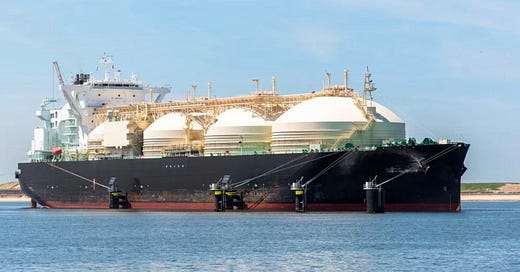Global Energy Wrap, Aug 21-27
Here's a summary of last week’s top global energy news that have the potential to impact global energy supply and demand.
Australia/ LNG
Woodside Energy reached an in-principle agreement with unions at Australia's largest LNG project, in the hopes of averting a supply disruption for one of the world's biggest exporters of the fuel.
Brazil/ Fossil fuels
State-owned Petrobras pledged to maintain a balanced portfolio, continuing to produce oil for the next four decades, but still boosting investments in renewables. While the company sees global oil demand dropping in coming decades, it believes that fossil fuels demand will remain strong.
China/ LNG
China's LNG gas importers are opening or expanding trading desks internationally to better manage growing supply portfolios in a global market that doubled in value last year. For example, PCI, a unit of PetroChina, is the country’s largest gas company, with traders and analysts in Beijing, Singapore, London, Dubai and Houston.
Germany/ LNG
Chemicals group BASF inked a deal to import 800,000 tons of LNG annually from the U.S., starting 2026 and running through 2043. The seller is Cheniere Energy, the biggest producer of LNG in the U.S. This is the latest in a string of LNG deals inked by German companies.
LNG/ Global markets
Global gas prices could rise in the short term if strikes at Australia’s LNG plants take place, but markets are well balanced now with inventory levels high in North Asia and Europe, a Shell executive said. Last week, gas prices jumped in Asia and Europe on concerns that industrial action could disrupt exports from Australia.
Mongolia/ CRMs
The U.S. wants Mongolia to deepen cooperation on mining rare earths and other minerals. Mongolia and the U.S. will seek “creative ways” to ensure that the country, which is landlocked by neighbors China and Russia, could get critical minerals onto the world market.
Norway/ Offshore wind
Equinor and partners launched the world's largest floating offshore wind farm. Its 88 MW of capacity will cover about 35% of annual power demand for five platforms at North Sea oil and gas fields.
Saudi Arabia/ CRMs
By 2030, Saudi Arabia plans to attract nearly $200 billion in investments in its nascent mining sector. The country’s known mineral wealth is estimated to be worth $1.5 trillion.
Sweden/ Battery storage
Northvolt raised €1.2 billion in convertible bonds, including from BlackRock, as Europe’s biggest battery maker is boosting production to meet EV demand. The debt issuance comes as the Swedish start-up prepares to raise $5 billion in equity financing in the next few weeks.
U.S./ LNG
The U.S. will remain the world’s dominant LNG provider over the next four years. By 2027 the country will have 284 million tons of annual LNG liquefaction capacity. In that period, global liquefaction capacity is expected to rise from the current 487 million tons annually to 958 million tons annually.





